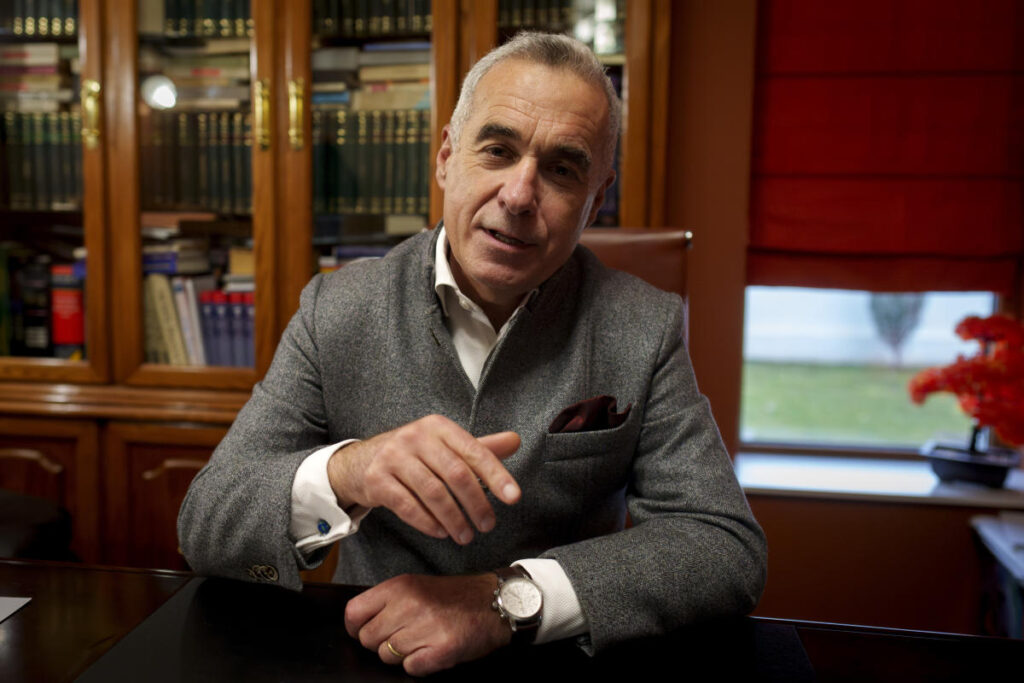On Saturday, Romanian prosecutors executed searches related to a man suspected of illicitly financing a campaign to support Calin Georgescu’s presidential aspirations. This operation took place in Brașov and followed the Romanian Constitutional Court’s unprecedented decision to annul the recent presidential elections, which had seen Georgescu, a far-right candidate, leading in the first round. The court’s ruling came after new intelligence suggested that Russia orchestrated a wide-ranging campaign across social media platforms to endorse Georgescu’s candidacy. Prosecutors are investigating allegations surrounding voter corruption, money laundering, and cyber fraud linked to this financing.
The focus of the raids was on Bogdan Peschir, who allegedly played a crucial role in a TikTok campaign designed to boost Georgescu’s profile. According to intelligence reports, Peschir purportedly disbursed substantial sums, approximately $381,000 (or 361,000 euros), to TikTok users to create content supporting Georgescu. Officials indicated that these funds were possibly derived from criminal activities, with the overarching charge concerning money laundering associated with financing the Georgescu campaign. Following the raids, Peschir is slated to be interrogated in Bucharest.
The court’s decision to invalidate the elections cited misuse of digital technologies, including artificial intelligence, alongside “undeclared sources of funding.” Although the court refrained from naming Georgescu specifically, it highlighted that one out of thirteen candidates in the first round received unjust advantages in social media narratives, thus distorting the electoral outcome. In response to the ruling, Georgescu condemned it as an “officialized coup,” framing it as an attack on democracy itself. Initially, he had emerged as the top candidate despite claiming zero campaign expenditures.
The political landscape has become complicated by the controversies surrounding this election. President Klaus Iohannis expressed serious concerns about the allegations of foreign interference, particularly in light of intelligence suggesting that Georgescu’s campaign was being unlawfully backed from outside Romania. He noted the striking disconnect between the serious campaign efforts and Georgescu’s declaration of no associated costs. Scheduled to face off against reformist candidate Elena Lasconi of the Save Romania Union party, Georgescu’s unexpected rise to prominence left many analysts questioning the validity of pre-election polls.
Political analysts have suggested that Georgescu’s success may largely be attributed to his strong social media presence, particularly on TikTok, where he has amassed over 6 million likes and a substantial follower count. However, concerns have been raised that this online following could be artificially inflated, with national security authorities alleging that he received preferential treatment on the platform as compared to other candidates. The ongoing investigations and political fallout are situated against a backdrop of increased vigilance concerning election integrity and foreign influence in Romanian politics.
Simultaneously, prosecutors have been investigating extremist groups through a series of raids across multiple counties, targeting organizations accused of fostering violence or hatred based on ethnicity, sexual orientation, or political beliefs in relation to the elections. The authorities are scrutinizing messages that incited violence against candidates and their supporters, alongside examining the promotion of fascist, xenophobic, or racist ideologies. As the implications of these actions unfold, the integrity of Romania’s electoral process and the influence of external forces remain at the forefront of national discourse, highlighting the complex intersection of politics, social media, and law.

